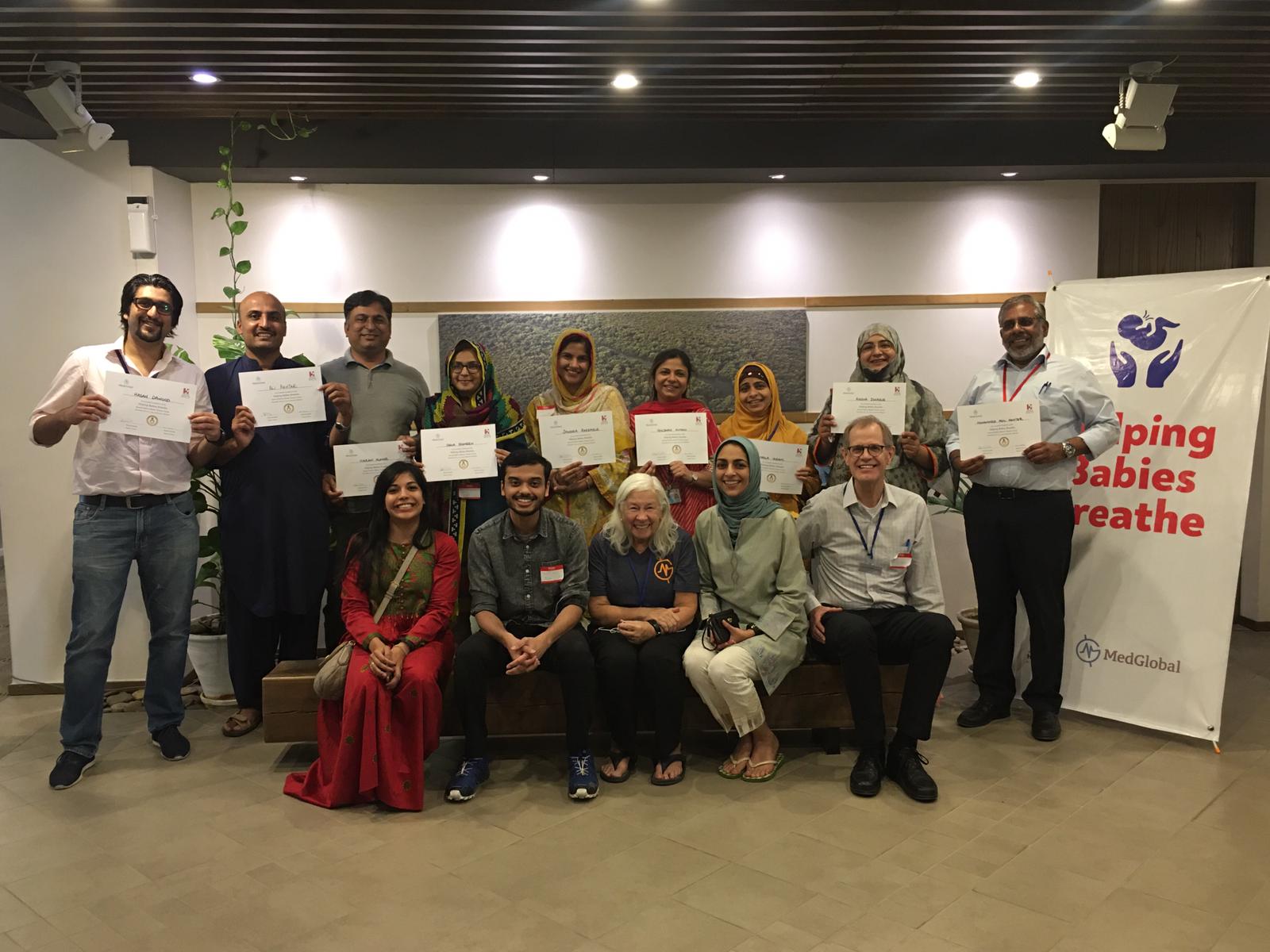By Dr. Henna Qureshi (Pediatrician and HBB Master Trainer)
November 2019
A daughter of Pakistani immigrants, i've longed for the opportunity to take my medical training in pediatrics to serve in a country dear to my heart.
With phenomenal healthcare professionals unfortunately the statistics still show less than 1 doctor for every 1000 patients in Pakistan, with a disproportionate coverage in rural communities. Not to mention, Pakistan ranks near the top 10% infant mortality in the world. Having recently taught HBB in Bangladesh I knew this was the best way to combine my pediatric skills and address a need for newborn resuscitation education.
As a group of MedGlobal volunteers with Master Trainer background worked to build our mission we were blessed to partner with the Indus Health Network. This hospital system provides quality healthcare free of cost to all patients; serving over 300,000 patients a month.
From November 17-24 five Master Trainers from the US traveled to Karachi, Pakistan to adopt a train the trainer module of education and train 10 Master Trainers in Pakistan. The newly trained team then over the course of the following week taught over 106 midwives, physicians, nurses, and students from across rural Pakistan to become HBB instructors as we supervised. In addition, we delivered neonatal resuscitation equipment to be distributed to areas of greatest need within the country where the instructors worked.
An incredibly inspiring moment for me was at the end of the week as we discussed the future of HBB and neonatal resuscitation in Pakistan with the new Master Trainers, we were able to hear how they plan to spread this education across the country focusing on rural areas such as Badin and Rahim Yar Khan where neonatal mortality is at its highest and the ratio of doctors is very low.
Another noted success was hearing how though many physicians had been taught versions of neonatal resuscitation; this was by far the most structured and offered the most hands on instruction of any course they had received in the past. We made sure there was enough equipment that all participants had ample opportunity to practice their skills as opposed to the lecture style of education that many of them were used to.
This of course lead to an obstacle we had to overcome during the mission as initially registration numbers were lower than expected so the Pakistan HBB team was struggling to have enough students per Master Trainer to teach. As word got out that this course was better than those taught in the past, people continued to show up looking to register the same day of the course. This lead to some delays in set up as were not able to plan in advance the numbers we thought we would have each day. Also some participants were looking to become facilitators leading us to have to run two HBB rooms at the same time. The new Pakistan MTs were delighted however as by the end of the week they all had ample opportunity to train many HBB providers. In the future we will work to solidify numbers in advance with proper explanation of the HBB curriculum and how it differs from other courses.
An important criteria to me for teaching HBB outside of the US is to slowly eliminate the need for support from outside of the country and develop a strong in-country HBB team to spread education and eliminate neonatal mortality. This strengthens the medical education and independence of the countries we are serving. I was delighted to see that Medglobal and Indus are on our way to do just that in Pakistan.
Medglobal and Indus has plans for monitoring and evaluation over the next few months to reassess the skills of our HBB instructors in an early spring mission to rural Pakistan. Stay tuned :)

Last Updated
11/15/2021
Source
American Academy of Pediatrics